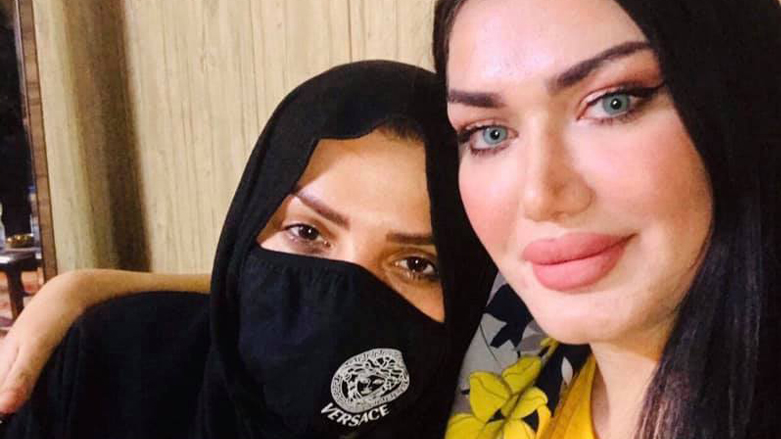Iraqi community police response to woman calling for teenage daughter's rescue from 'forced marriage' causes stir on social media
Esra'a's mother "told me that they took her daughter by force and they had her marry that guy against her wish," said the leader of a human rights organization that has hired lawyers to defend the girl in court.

ERBIL (Kurdistan 24) – A video widely circulated on social media over the past week showed a woman calling on Iraqi authorities to save her 12-year-old daughter from forced marriage, with many social media users condemning the authorities' response and Iraqi laws that allow the practice.
The recording shows the woman crying and calling on Iraqi Prime Minister Mustafa al-Kadhimi to rescue her daughter, Esra'a, from forced marriage. Social media users expressed solidarity with the mother and called on the police to take action.
The woman later told civil society organizations that her ex-husband had forcibly taken Esra'a and had her marry his second wife's brother against her teenage girl's wishes, outside of court.
On October 29, the head of the Iraqi Community Police (ICP), Ghalib al-Attia, announced through the body's official Facebook Page that they investigated the case. Members of the force met with Esra'a, her husband, her father, and her brother, and, the statement claimed, the 12-year-old girl had told them that she had chosen to get married and that she was happy.
Attia further stated that there are no issues with the marriage and that his team had seen the customary marriage contract, a document obtained outside of court from a religious Imam or Sheikh.

Social media users were outraged by the Iraqi Community Police's response, denouncing the Iraqi laws that allow underage marriage and the ICP for justifying the act.
Lena Ali, the leader of Freedoms Observatory for the Defense of Women and Children organization, described forced marriage in a UTV interview as a "big crime." She explained that Esra'a had been raped and was then forcibly married to her rapist.
Esra'a's mother "told me that they took her daughter by force and they had her marry that guy against her wish," Ali said. "We are trying to continue talking to Esra'a's mom, and we hired three lawyers to defend her in the court until they get all her rights back."
Child marriage represents a consistent phenomenon across all regions in Iraq. More common in rural than urban areas. Although the legal age of marriage by law in Iraq is 18, the law allows for an exception to this general rule and judges can authorize a marriage that they determine as an urgent necessity, or issue the contract of marriage by the father's approval.
According to the International Federation of Gynecology and Obstetrics (FIGO), there are many traditional social and cultural factors behind child marriage in Iraq, including the idea of protecting girls through early engagement in formal relationships.
Other factors include poverty and the protracted insecurity Iraq continually witnesses, and the associated humanitarian crisis. These have forced many families to marry their girls early to help lower their overall cost of living and protect them, or so they think, from the risk of violence, including rape.